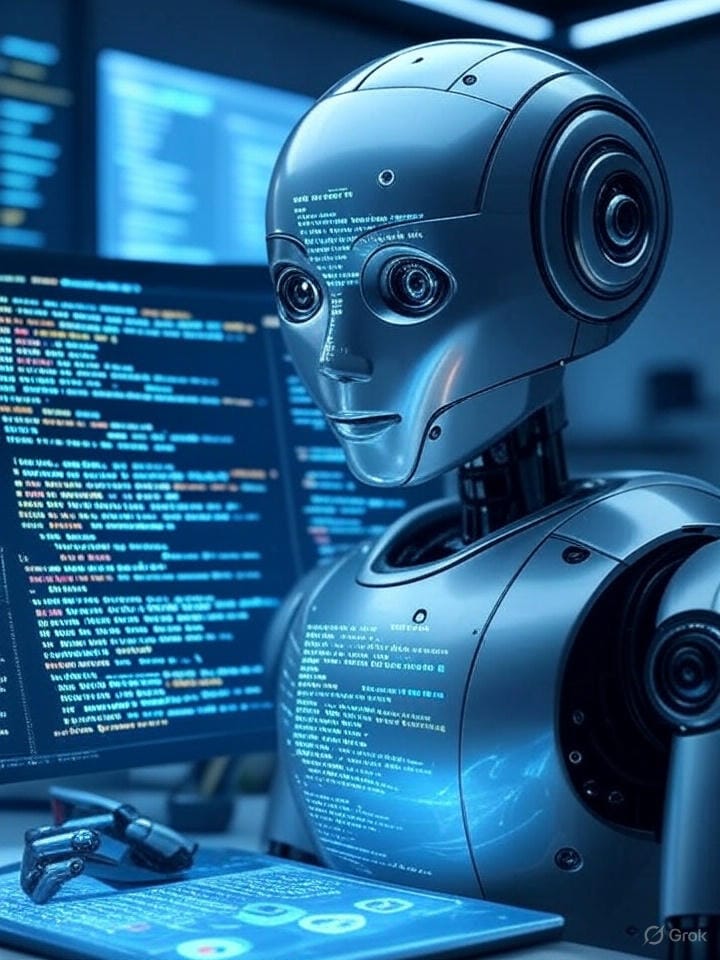How Factory AI Droid Is Revolutionizing Code Automation and Accelerating Software Development

Game Changer: Factory AI’s Droid Surpasses Claude Code and Codex CLI in Code Automation
The Latest Milestone in Autonomous Software Development
In a remarkable leap for programming automation, Factory AI has unveiled its latest software agent, Droid, which has outperformed established solutions in recognized industry benchmarks. Setting a new standard in intelligent development, this software agent overtook previous leaders, showcasing superior performance when compared against both Claude Code and Codex CLI. The roll-out underscores a significant moment in the evolution of autonomous software engineering tools, putting Droid squarely at the forefront of next-generation code automation technologies.
What makes this breakthrough especially noteworthy is not just its top ranking; it is the platform's ability to drive entire projects from initial requirements to production-ready deployment. Rather than focusing on narrow aspects of code generation, Droid brings comprehensive automation to the entire life cycle of modern software engineering. This enables user teams to streamline development, reduce human error, and accelerate time to market—qualities that are in high demand for today’s fast-paced development cycles.
As organizations increase reliance on intelligent programming assistants, the ability to understand and manage both new and legacy codebases has grown more vital. Droid’s position at the top of comparative performance charts signals a new era for agent-native software development, emphasizing not only power and versatility but also seamless adoption within existing workflows.
The Breadth of Advanced Capabilities
Droid stands out for its remarkable versatility, addressing a spectrum of challenges that developers encounter daily. At its core, the agent independently constructs complex code modules, refines existing logic, and identifies as well as resolves bugs with minimal human intervention. It is equipped to handle intricate database operations: this includes optimization of queries, migrations, and performance tuning—critical tasks in scalable infrastructure management.
Legacy modernization is another area where Droid excels. Organizations often face hurdles when updating outdated systems, yet Droid can analyze, refactor, and uplift legacy code with semantic precision, preserving business logic while transitioning to contemporary standards. Its documentation capabilities ensure thorough and consistent records, further reducing technical debt and onboarding times for future contributors.
For teams building cloud-native applications, this agent introduces the ability to manage virtualized infrastructure, automate configuration, and deploy scalable systems. These features make it a highly valuable addition to DevOps workflows, bridging the gap between development and production environments with transparency and speed.
Training, Customization, and Integration Without Limits
Beyond standard development automation, one of the most innovative facets is the agent’s ability to autonomously train specialized language models for targeted tasks. This approach empowers engineering teams to continually enhance and tailor their computational resources without deep expertise in AI architecture or fine-tuning processes.
Droid’s structure is engineered for adaptability. The platform allows for fine-grained customization—every workflow, command, or automated process can be shaped to fit an organization’s unique protocols and policies. This encompasses not only backend development tasks but also the orchestration and synchronization of alerts, feature requests, and product requirement documentation.
Integration is another cornerstone: the system can function within any developer's environment, appearing directly in command-line tools, code editors, popular team collaboration apps, or issue-tracking software. This means teams do not need to rebuild or reorganize their processes to employ the new agent. Instead, it fits into existing toolchains, aligning with established habits and maximizing organizational productivity with minimal disruption.
The Universal Engineer—A Vision for Autonomous Digital Collaboration
By setting the pace in recent comparison tests, this agent positions itself as the essential digital collaborator for modern engineering teams. It is not limited to code scripting or management tasks; it demonstrates the ability to address every layer of the software development stack, from data persistence and logic to user requirements, feature assignment, and incident response.
With this advancement, Factory AI has elevated the expectations of what developer agents can achieve. The release marks a step toward a universal, context-aware engineering partner—one capable of learning from live project dynamics, optimizing deployment strategies, and supporting robust cloud architectures on demand.
As organizations worldwide race to leverage automation for more reliable, scalable, and innovative products, Droid’s unrivaled blend of end-to-end automation, integration flexibility, and AI-powered insight stands as a blueprint for what is next in autonomous development. The emergence of such agent-native technologies is set to redefine how teams collaborate, innovate, and deliver digital solutions for years to come.
